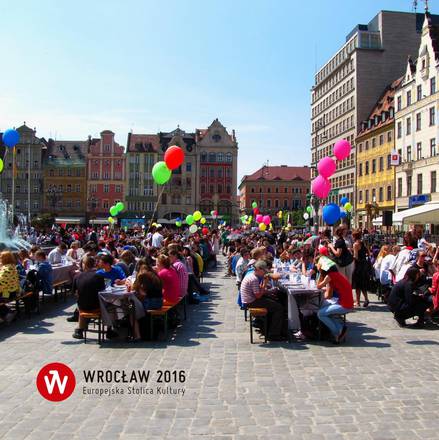Wroclaw, 'Little Italy', European Capital of Culture in 2016
City remembers the past and looks to the future, by investing
09 June, 11:13The city's mayor, Rafal Dutkiewicz, outlined the programme of events - about 350 spread throughout the year including music, art, theatre, literature and meetings - at a press conference in Rome. Wroclaw is a city that since the Second World War has been always able to reinvent itself, and it has become one of the most dynamic towns in the European Union, particularly after Poland's EU accession (in 2004), with a regional GDP growing between 11 and 12% every year. The city is able to attract many multinational companies and many young people - 140,000 youths attend the local campus - and also many foreigners, including about 2,000 Italians, who work here and invest in the city's economy; that is why Wroclaw has earned the nickname 'Little Italy'.
Silesia's historic capital, Wroclaw was part of Germany between 1741 and 1945. Between 1945 and 1949, most of the Germans who lived in Wroclaw fled or were expelled. ''Almost 100% of the population moved somewhere else'', Dutkiewicz recalled, and was replaced by Poles coming back mainly from the territories east of the so-called Curzon Line and annexed by the USSR.
Mr Dutkiewicz (at his 4th term as mayor) underlined that the city was ''80% destroyed'', but then rose from the ashes. Part of the cultural programme for 2016 will therefore be focused on remembering the past; the great transformations that occurred in 1945 and 1946 will be presented in a new museum - a former bus depot - which will open in 2016.
The struggle for the country's independence and the masterpiece written by Polish poet Adam Mickiewicz, ''Mr. Taddeo'', will be the focus of another museum which is set to be inaugurated on April 23. Another symbolic place that will host the headquarters of Wroclaw European Capital of Culture 2016 is the ''Barbara Bar'': a cafeteria that used to shelter the members of Orange Alternative, underground art movement opposed to the communist regime. With a 50 million investment that the government and the local Municipality have made available, in addition to a new neighborhood with residential and public spaces, the largest Music Academy in Poland and the first museum dedicated to the country's theatre scene will be inaugurated next year. A sample of what the capital of Lower Silesia is able to offer will be available during the weekend of June 19-21, when the city will host dozens of shows and performances, including a concert by Andrea Bocelli.














